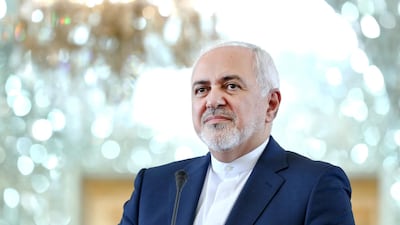Tehran’s announcement that it has exceeded the enriched uranium limits set out in the 2015 nuclear deal strengthens its posture against US pressure, without causing a big enough rift with Europe, which it needs to help fend off Washington.
But if the announcement does not press the EU into helping to restore the oil revenue lost to US sanctions, Tehran may have set itself on a course of more serious breaches of its nuclear limits.
As Iran pursues diplomacy backed by tough action that has started to chip away at the nuclear deal, it might not be possible to maintain the balance in its relationship with Europe.
It might also attract US or Israeli strikes with potentially devastating consequences across the region.
The extra uranium build-up so far does not appear to bring Tehran in a significant way towards making a nuclear bomb.
Iranian officials have been careful to say a bomb is not their goal, reinforcing arguments in European capitals, particularly Paris and Berlin, to continue accommodating Tehran.
Kelsey Davenport, a non-proliferation specialist at the Arms Control Association in Washington, said on Twitter that Iran was “seeking leverage, not dashing for a bomb” by exceeding the uranium limit. But it is early days.
The danger of uncontrolled escalation appears to have been on the mind of the French government when it called on Tehran to go back to the deal's limit, and avoid “all extra measures that would put into question its nuclear commitments”.
The reaction was not echoed across the EU and had there been a unified response, it would have been co-ordinated in advance because the Iranian move had been expected.
Germany said it was “very concerned” while Britain took a more advanced position, saying it wanted to preserve the nuclear deal but would join the US in leaving if Iran breaks the accord.
The EU might have held some hope that Iran, while gradually increasing its uranium stockpiles, would not actually break the limit.
At the regular meeting to review the nuclear pact, which was held in Vienna on Friday, senior EU official Helga Schmid said good progress had been made on containing Iran’s uranium enrichment.
Although the meeting preserved the nuclear deal, the EU made an apparent concession, announcing the activation of a financial system, called Instex, to help Iran around some US sanctions, without securing any commitment to stick to the nuclear limits.
Iran further drove its diplomatic advantage, saying on Monday that the extra uranium build-up was reversible if the EU did more, while insisting it had not breached the nuclear deal.
The big prize for Iran is oil revenue. Tehran wants the EU to help Iran restore oil sales cut sharply by the sanctions.
The US said oil revenue has contributed to finance and arm Iran’s proxy militias, who in Syria helped the regime to destroy masses of its own population and sowed what Washington terms as instability across the region.
Europe had conceded to Tehran on the regional issue, ignoring Iran’s intervention in the Syrian civil war despite the large number of Syrian refugees who had made their way to Europe, contributing to a populist backlash.
In early May, Iranian Foreign Minister Javad Zarif said Iran and the EU were “on the brink of agreement” on an oil sales deal.
That deal appears to have foundered with Europe having to measure the effects of defying the US on its own economies and politically.
Ryan Bohl, political analyst at US risk assessment company Stratford, said there remained European consensus on giving more time for Instex to work but if Iran keeps wanting more, “the hawks in Europe will gain the upper hand".


